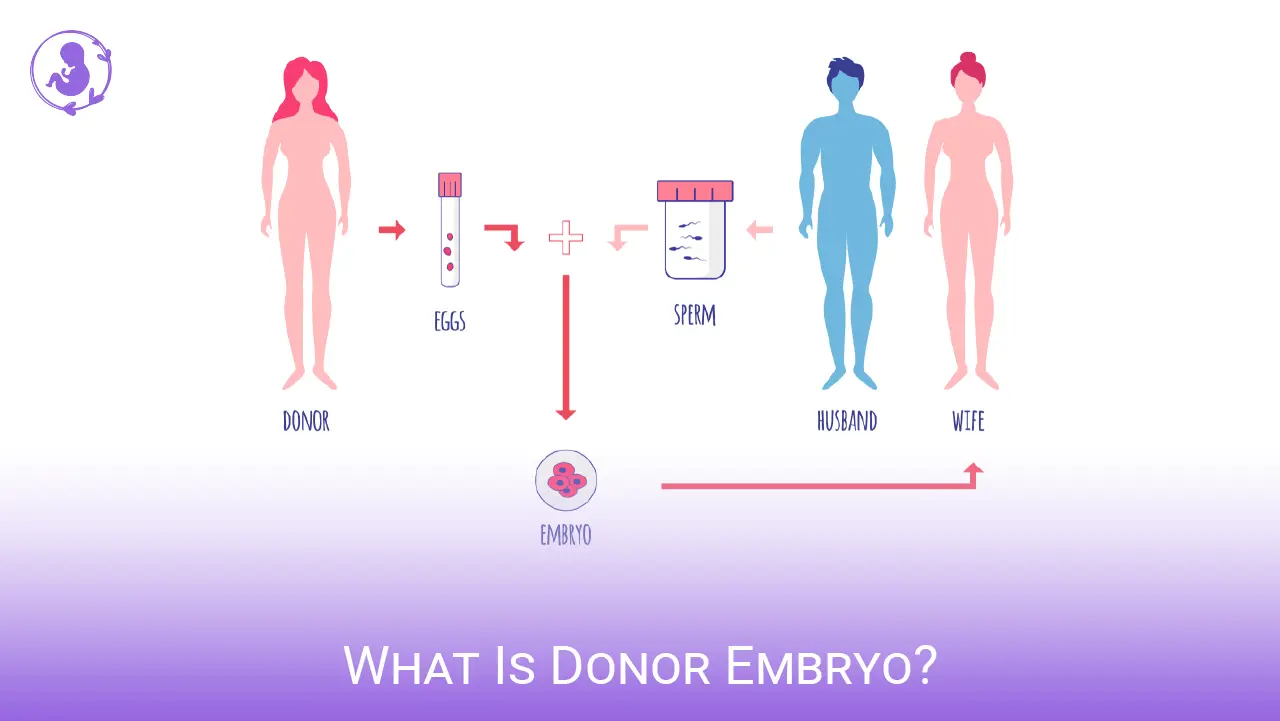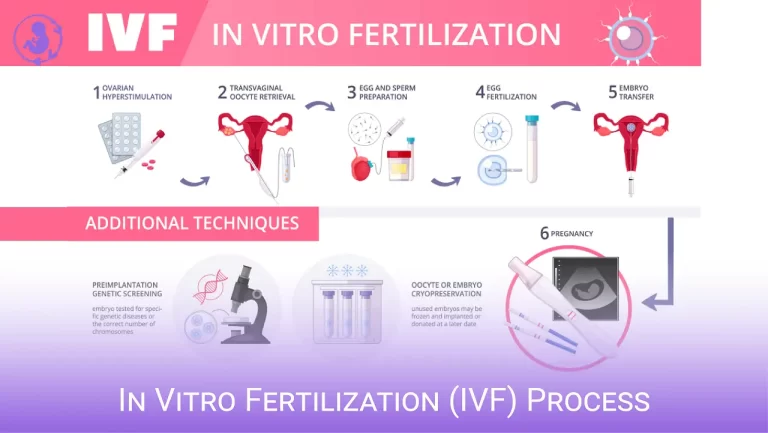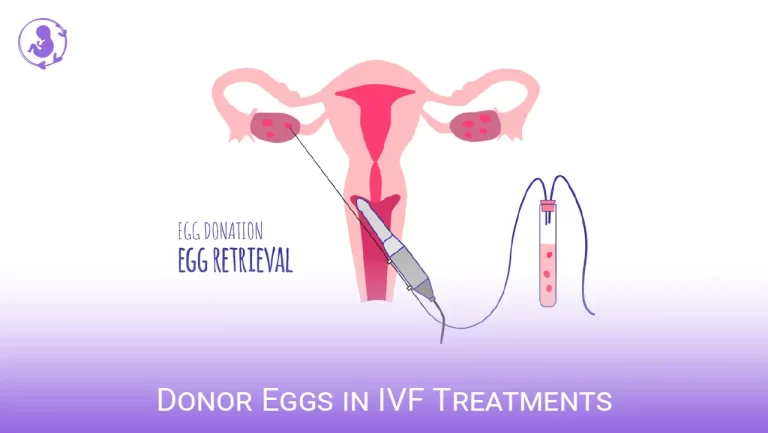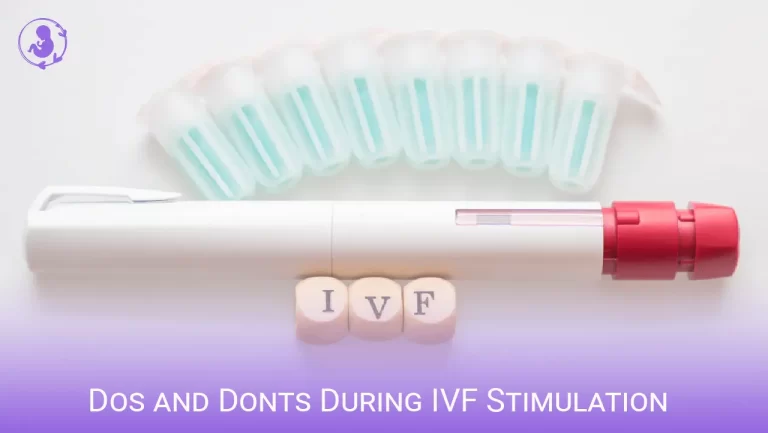What Is Donor Embryo, Process, Benefits and Associated Costs
Are you struggling with infertility and longing to experience the joy of having a child?
Embryo donation could be the answer you’ve been searching for. By receiving cryopreserved embryos from another individual or couple, you have the chance to achieve pregnancy and childbirth.
Similar to egg or sperm donation, this process offers a cost-effective alternative to traditional IVF. With ongoing research and improvements, embryo donation provides hope and options for individuals or couples like you who are eager to build a family.

The Embryo Donation Process
The embryo donation process involves receiving a non-autologous embryo, where you and your partner are not genetically connected to the egg or sperm donor. This process allows you to have the opportunity to become parents and experience the joys of pregnancy and childbirth.
By participating in the donor embryo program, you can benefit from the chance to have a child and create a loving and nurturing family. It is important to consider the associated costs of the embryo donation process, as there may be expenses involved in medical screening, legal agreements, and the actual transfer of the embryo.
However, the success rates of embryo donation are promising, and many couples have achieved their dream of parenthood through this method. Keep in mind that the use of donor sperm may also be involved in the process.
Benefits of Donor Embryo
Experience the joy and fulfillment of pregnancy and childbirth through donor embryo.
When considering the option of using donor embryos, there are several benefits to keep in mind.
- The chance to conceive and have a child: Donor embryos provide an opportunity for individuals or couples with fertility issues to have a child and build their family.
- Access to healthy embryos: Donor embryos are typically created using healthy eggs and sperm, increasing the chances of a successful pregnancy.
- Cost-effective alternative: The cost of embryo donation is often more affordable compared to traditional IVF treatments, making it a viable option for those seeking fertility treatment.
Emotional Considerations in Embryo Donation
Consider the emotional complexities involved in embryo donation, as you navigate the decision of informing the child about their biological parents and maintaining open communication within your family.
Embryo donation is a process where embryos donated by other couples are transferred to your uterus, giving you the opportunity to conceive and have a child. The benefits of embryo donation include the chance to experience pregnancy and childbirth, as well as the opportunity to provide a loving and nurturing family for a child in need.
However, there are associated costs to consider, including medical screening and testing, as well as the emotional considerations of the child’s identity and sense of belonging. It is important to seek counseling and support throughout the process to ensure that all parties involved are well-informed and emotionally prepared.
Rest assured, embryo donation has high success rates, offering hope for couples struggling with infertility.
Legal and Ethical Aspects of Embryo Donation
Legal and ethical considerations play a vital role in the practice of embryo donation. When considering donating embryos, it’s important to understand the process, benefits, and associated costs.
- Donor embryo process: The process involves receiving a non-autologous embryo created using a donor egg and unrelated sperm. The fertilized embryo is then transferred to the recipient’s uterus, and the resulting child is considered the child of the mother who delivers them.
- Benefits: Embryo donation provides an opportunity for couples with fertility issues to have a child and experience pregnancy and childbirth. It also offers a chance for the child to have a loving and nurturing family. Additionally, it allows couples who cannot conceive with their own eggs and sperm to have a child.
- Associated costs: The costs of embryo donation can vary, but it’s generally a more cost-effective alternative to traditional IVF. This can make it more accessible for individuals or couples seeking fertility treatment.
It’s important to navigate the legal and ethical aspects of embryo donation, including anonymous donations, legal agreements, and the rights of the child and donors. Proper documentation and informed consent are crucial in this process.
Considerations for Embryo Donors
When deciding to donate your embryos, it’s important to understand the emotional impact and the options available to you. As an embryo donor, you play a vital role in helping couples with fertility issues have a child.
Before making this decision, consider the process, benefits, associated costs, and important considerations. Fertility clinics typically handle the donation process, which involves the embryo transfer procedure to the recipient’s uterus. It’s crucial to ensure that the embryos are viable and undergo preimplantation genetic testing to increase the chances of a successful pregnancy.
Additionally, you may have the option to choose between open or anonymous donation. Understanding the emotional impact, undergoing medical and genetic screening, and deciding on the number of embryos to donate are all essential considerations for embryo donors.
Recap – What Is Donor Embryo?
Embryo donation offers a valuable opportunity for individuals or couples struggling with infertility to achieve their dream of having a child. Through the process of donating cryopreserved embryos, those who are unable to conceive with their own eggs and sperm can still experience the joy of parenthood.
The benefits of embryo donation include cost-effectiveness and the potential for success in achieving pregnancy. However, it is important to consider the emotional and ethical aspects of embryo donation, as well as the legal considerations involved.
Overall, embryo donation provides hope and options for building a family.
Read More On IVF






